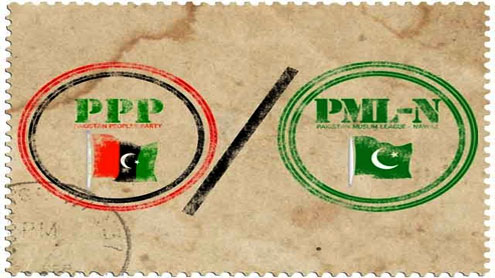
One small step forward for Nawaz Sharif, the new election winner, but one big step forward for Pakistan. The religious parties and their militant, sometimes violent, followers have won so few votes they will play no significant role in parliament.
The overwhelming majority of Pakistan’s ethnically disparate population has made it clear that they identify with secular politics. Hussein Haqqani writes in his insightful new book on Pakistan that “Most Pakistanis would probably be quite content with a state that would cater to their social needs, respect and protect their rights to observe religion and would not invoke Islam as its sole source of legitimacy.”
If Pakistan’s democracy were allowed to play a central role — as seems to be happening at the moment — the prospects would be much better. For years, particularly under military rule, the Islamists, not least the militant, dogmatic part of them, have been allowed to set too much of the agenda. In foreign policy issues, such as the argument with India over the possession of Kashmir and support for the Taleban in Afghanistan, they have long acted outside the rule of law.
As in 18th century France when the revolution consumed its own children, so have the Pakistani militants become not just the country’s nightmare but the army’s too despite all the support the ISI has given them. When General Pervez Musharraf was president, leading a military government, he narrowly escaped assassination by militants three times.Musharraf was never able to get on top of the paradox the military over decades had created for itself — supporting the religious parties while being threatened by them.
He was in many ways a liberal, pursuing an agenda of increased women’s rights, freeing the Press, pushing for improved education, including the curriculum of the madrasas, the religious schools, and promoting the Sufi school of Islam (more given to mysticism than violence). He also allowed the courts more freedom.Yet these moves were all cautiously made, and he constantly looked over his shoulder at the militants who he allowed to be supported by the ISI because of their activities in Kashmir and Afghanistan — in the latter not because he supported the Taleban but because he wanted to maintain some degree of leverage with them. He always presumed the Americans and Nato would be compelled to withdraw.
Musharraf also wanted to use the militants as a line of defence against the non-religious parties, which constantly manoeuvred to displace him. He recognised the religious parties as the main opposition in parliament despite them having won only 11 per cent of the vote in the election of 2002.Nevertheless, he bravely took the religious parties head on when he opened up negotiations with India on Kashmir. He dropped many of Pakistan’s previous positions and gave India most of what it wanted. In the end it was India that refused to consummate what looked like a deal. And once he was turned out of office — by the threat of impeachment — the one man who could have made a deal stick in Pakistan was no longer at the helm.
The militants returned to attack in Mumbai that took 164 lives. The government headed by President Asif Ali Zardari was so intimidated by the extremists that it dithered over the extent it would cooperate with India in bringing those behind the attack to book.Militants are not new. As a power they go right back to the Bangladesh war of independence from Pakistan in 1971 when the military supported religious groups to keep secular leaders out of power in East Pakistan (as Bangladesh then was). In the late 1970s, following a military coup, General Zia ul-Haq took the country in a more theocratic direction, basing the country’s legal and educational system on Shariah. Zia wanted Pakistan to become the centre of a global Islamic resurgence. This was the beginning of militants travelling to Pakistan to be at the centre of the action, which then was aimed at repulsing the Soviet occupation of Afghanistan.
The US, for its part, prior to 9/11 did little to dissuade Musharraf or his predecessors from turning towards the militants. They were particularly useful in the war against the Soviet Union and many of the groups that US military aid was funneled to via the ISI were those that later backed the Taleban and Al Qaeda, and fought in Kashmir.This is the Pakistan that Nawaz Sharif inherits. He has a mandate from Pakistan’s secular majority. Can he stay the hand of the militants? – KhaleejTimes












